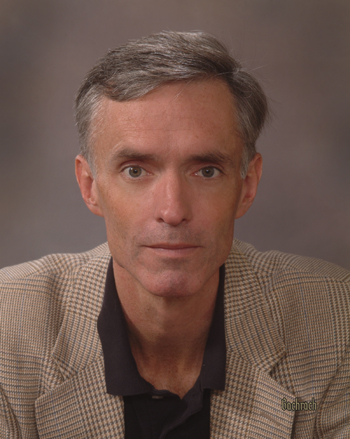ScienceLives: Bioengineering Synthetic Life

This ScienceLives article was provided to LiveScience in partnership with the National Science Foundation
James Collins is a Howard Hughes Medical Institute Investigator, university professor of biomedical engineering at Boston University, and a core founding faculty member of the Wyss Institute for Biologically Inspired Engineering at Harvard University. Collins is one of the founders of synthetic biology, as well as a pioneering researcher in systems biology, having made fundamental discoveries regarding the actions of antibiotics and the emergence of resistance. He has received a number of awards, including a Rhodes Scholarship and a MacArthur "Genius Award." Collins has taught over 1000 bioengineers in the classroom, and trained over 150 undergraduate, graduate students and postdocs in his lab. Read more about his research, here.
Name: James J. Collins Age: 45 Institution: Howard Hughes Medical Institute, Boston University, and Wyss Institute, Harvard University Field of Study: Bioengineering – Synthetic Biology and Systems Biology
What inspired you to choose this field of study? I was inspired to go into bioengineering by my two grandfathers. Each was affected by a disability – one went blind, while the other was left partially paralyzed by a stroke. Growing up in the 1970s, I saw amazing technology being developed for the military and space programs, and little being done technologically for those with disabilities.
What is the best piece of advice you ever received? Charles Delisi, who was then Dean of Engineering at Boston University, encouraged me to ignore all that was going on around me, and instead focus on doing something exciting – something that would be exciting to me as well as the larger scientific community.
What was your first scientific experiment as a child? When I was eight years old, my grandparents gave me a chemistry set. I conducted every experiment described in the manual and then began playing around with novel mixtures of chemicals. Luckily, I didn't blow up our basement or sicken our family.
What is your favorite thing about being a researcher? The act of discovery is thrilling, and keeps us all coming back to the lab each day, hoping this will be one of those rare days when we discover something novel and meaningful.
Sign up for the Live Science daily newsletter now
Get the world’s most fascinating discoveries delivered straight to your inbox.
What is the most important characteristic a researcher must demonstrate in order to be an effective researcher? An effective, innovative researcher has to be willing to fail and be capable of dealing with failure. Most of our ideas are wrong or don't work.
What are the societal benefits of your research? Our lab is driven by our mission to improve the lives of others by integrating engineering with biology and medicine. Currently, our primary focus is to use systems biology and synthetic biology approaches to develop more effective antibacterial therapies and thwart the emergence of antibiotic resistance.
Who has had the most influence on your thinking as a researcher? My dad has had the biggest influence on my thinking as a researcher. He is an electrical engineer by training and a dreamer by hobby.
What about your field or being a researcher do you think would surprise people the most? I think most people would be surprised at how often we fail in the lab and how little we actually know about living systems. For instance, I think we have a much deeper understanding of how a computer works than we do the simplest of organisms.
If you could only rescue one thing from your burning office or lab, what would it be? Of course, our fantastic team of young people; everything else, including our collection of engineered microbes, is replaceable.
What music do you play most often in your lab or car? I listen to acoustic rock in my car (much too loudly!) and classical music in my office, particularly when I am writing.
Editor's Note:This research was supported by the National Science Foundation (NSF), the federal agency charged with funding basic research and education across all fields of science and engineering. Any opinions, findings, and conclusions or recommendations expressed in this material are those of the author and do not necessarily reflect the views of the National Science Foundation. See the ScienceLives archive.
Why is yawning contagious?
Scientific consensus shows race is a human invention, not biological reality











